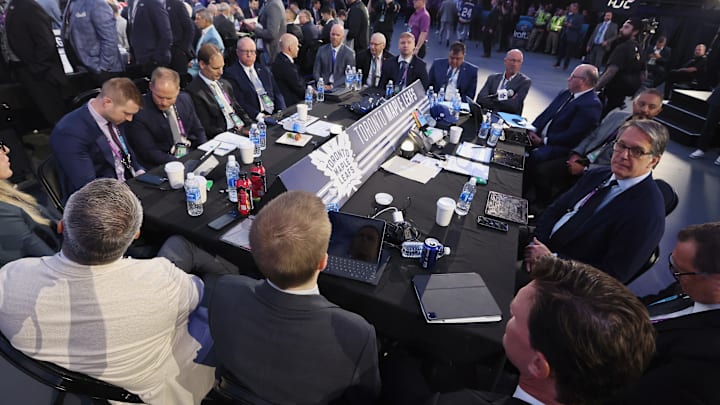The on-ice product won’t change, for now
The deal should have little if any impact on the on-ice product for now. The Toronto Maple Leafs should continue to operate business as usual, with players, coaches, and management largely unaffected by the deal.
Nevertheless, there may be a trickle-down effect moving forward. As Rogers reconfigures MLSE’s board, new or existing members will have a chance to implement policies and make decisions that the previous board may have rejected.
These policies could start with changes in upper management and trickle down to middle management, the coaching staff, and players.
Here’s where the rubber hit the road. High-level executives like team President Brendan Shanahan may be on the chopping block if MLSE’s board is unhappy with the on-ice product. Then, other top-level executives like GM Brad Treliving may be in the spotlight as well.
Of course, it’s far too early to speculate about any such changes at this point. The likeliest scenario is that everything remains the same until the Leafs season is over. If the season ends with a successful playoff run, fans should expect the status quo to remain.
But if the Leafs wash out in the first round of the playoffs again, or, heaven forbid, the Leafs miss the playoffs, there could be significant changes looming on the horizon next offseason.
Again, it’s too early to tell. But one has to wonder if Leafs upper management is walking on eggshells at this point. Forbes reported that the buyout won’t close until some point in 2026. As a result, the current team administration could have one, maybe two seasons, to get it right.
Otherwise, the Toronto Maple Leafs could look radically different in 2026. Whether that involves a shakeup from the top down, or perhaps going as far as blowing everything up and starting from scratch, we can’t know for sure.
